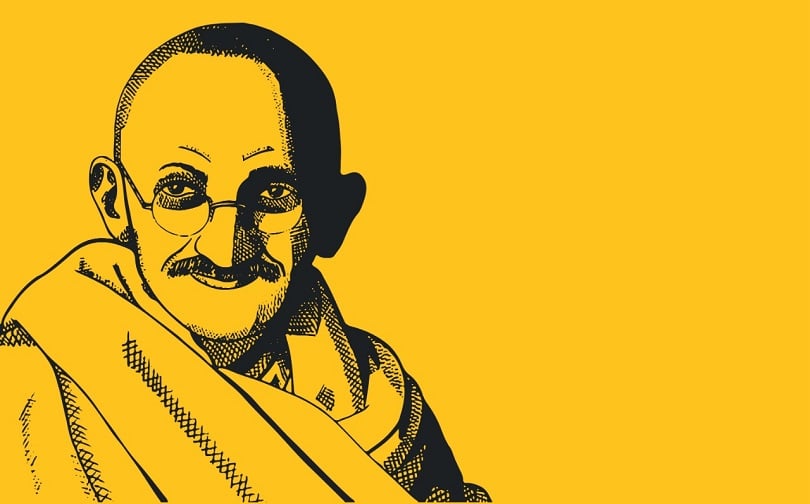Gandhiji’s taste buds were as simple and plain as his political philosophy. Almost like a reflection of his life.
“India does not need imported drugs from the West when she has an inexhaustible stock of a variety of drugs grown in the villages themselves. But more than drugs they have to teach the people the right mode of living.” Mahatma Gandhi had said.
Although Gandhiji was never against allopaths, vaidyas and hakims, his preference lay with naturopathic medicines. He often said that if disease was a result of breaking nature’s law, nature would be able to rectify it.
While living in South Africa, Gandhiji often had a problem of digestion for which he took some herbal medicine. He thought that taking medicine to improve digestion is not the solution as he had to constantly depend on doctors and chemists to get healed. It was then that one of his friends from The Vegetarian Society gave him Rolf Just’s book titled ‘Return to Nature’. He read the book and started making modifications in his life based on nutrition, dietary plan and mud therapy for stomach ailments. He found them effective. It was then he realised that this healing method, which was free from medicinal pills, was useful for villagers living in a developing nation like India, where hospitals and doctors are not readily available. He even wrote down his experiences in Indian Opinion in 1906.
In his experiments, Gandhiji found that soil or mud is a great remedy for several debilitating diseases caused due to digestion and stress. Mud has a cool and detoxifying effect. He used to employ naturopathy to treat himself and performed it on his family members as well.
Like all other aspects of his life, Mahatma Gandhi also believed that food should be simple and earthy. It was not merely a means to satisfy hunger. Instead, Gandhiji viewed food as an essential ingredient that shaped human consciousness. “It is true that a man cannot live without air and water, but it is food that gives consciousness and energy to the body,” he had said.
Mahatma Gandhi had a healthy appetite and he always preferred consuming a nutritious diet. He experimented with various diets throughout his life before narrowing down his preferences. Perhaps, that’s what makes Gandhiji India’s first nutritionist and diet guru.
Among his many food philosophies, the one that he emphasised the most was to avoid excessive eating as he believed that frequent meals and overindulgence of concentrated starches and sugars were unhealthy and caused diseases. He suggested avoiding sweets and consuming Gur (jaggery) in small quantities as much as possible. Also, he was against the concept of consuming polished rice or refined wheat flour.
Walking every day, good intake of fresh vegetables and fruits, consuming food items low in sugars, salt and fats, abstaining from tobacco and alcohol, maintaining environmental cleanliness and personal hygiene were some of the tenets of good health Mahatma Gandhi had preached and practiced during his lifetime.
According to him, “Man was not born a carnivorous animal, but born to live on fruits and herbs that the earth grows”. Mahatma Gandhi’s definition of vegetarianism was also somewhat unique for he considered milk as non-vegetarian and egg to be vegetarian. He always made sure to carry goat milk and curd with him wherever he went for a meal.
Also, what is interesting is how, in his bid to cure himself, the Mahatma always focused on altering his diet – natural diet of fresh fruits and nuts, giving up milk, making his own wholemeal bread with hand-ground flour, and frequent fasting.
His day began with honey in hot lemon water. His daily food intake comprised 80 grams of wheat preparations, 80 grams of almonds, 80 grams of raw and green leafy vegetables, six lemons and honey. His meal was divided into two parts—morning meal at 11 am and evening meal at 6:15 pm. In between meals he drank only water.
Apart from following a disciplined dietary regime, Gandhiji used to walk for about 4-10 km daily. He would also do Pranayama regularly to keep his blood pressure and stress levels under control.
Gandhiji, in his lifetime, wrote a number of books related to food and health. These included ‘Diet and Diet Reforms’, ‘The Moral Basis of Vegetarianism’ and ‘Key to Health’. And, what’s remarkable about Gandhiji’s diet recommendations is that they are relevant even today.


















Add Comment